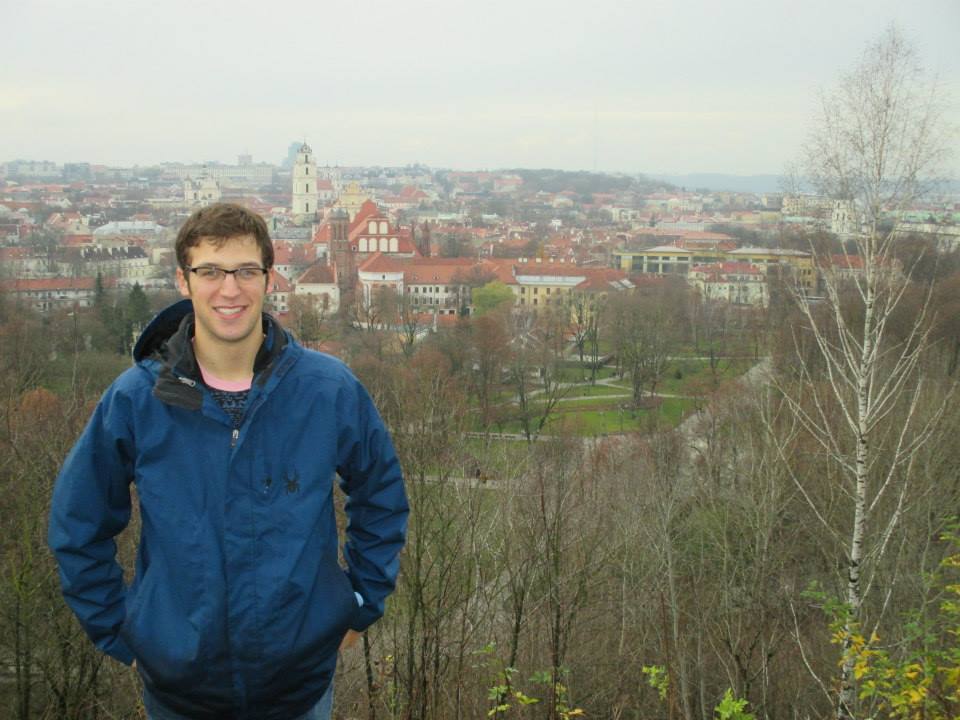
Blasé, concierge, and faux pas, among many other words, have become so integrated into the English lexicon that we often forget their French origin. The process of adopting words from other languages has been common practice for centuries, and, in fact, English has more borrowed words than any other language. This stands in stark contrast with French, which prides itself on being a “pure” language. In fact, l’Académie française, an institution devoted to maintaining the integrity and heritage of the tongue, was founded in 1635 and still has a strong hold on the French dictionary to this day.
Brendon Kaufman ‘15 is a mathematics and French double major, who spent the last academic year participating in the Hamilton in France program, and recently received an Emerson Grant to stay in Paris for the summer researching the use of Anglicisms in everyday French. Although he had originally planned on becoming an Arabic interpreter, Kaufman now intends to pursue linguistics at the graduate school level after graduating in the spring.
Kaufman, who has been studying French for nine years, has become even more fascinated by linguistics after his sojourn in Paris. He says that living in a foreign language environment has made him rethink concepts such as fluency, ‘proper’ grammar and the language barrier. Professor of French Bonnie Krueger, in coordination with Professor Huy Linh Dao, of Paris Sorbonne III, is supervising Kaufman’s Emerson project, "Social Uses of English Language Borrowings in France," which has a sociolinguistic focus. He is interested in observing the contexts in which the French layperson uses words borrowed from English, with whom he or she uses them, and the social implications of those usages.
To preface the explanation of his project, Kaufman referenced a well-documented phenomenon: after WWII, America rose to the forefront of the international stage, accompanied by English replacing French as the global language. Although French had always maintained its ‘purity,’ in the years following WWII, the French lexicon adopted many English words. This provoked René Étiemble, famous French essayist, to publicly condemn what he condescendingly named “Franglais.”
Although Kaufman admits that many French citizens would still consider themselves linguistically conservative, he postulates that overall, the French are becoming more blasé about the borrowed words they let into their dictionary. Kaufman believes that, in particular, the younger generation is more accepting of borrowed words, adopting popular phrases such as hashtag, selfie, rush and think tank.
Kaufman hypothesizes that the number of Anglicisms, as well as the frequency of usage, is on the rise. He plans to test this theory using two approaches: one quantitative, the other qualitative. First, he will take the most popular Anglicisms and run them through an online database of French publications, taking note of where they appear and why; he will then analyze the results to see if the trend has changed over time. At the same time, Kaufman will gather qualitative data through a questionnaire, in order to gauge the social attitudes toward Anglicisms in everyday speech. Since the younger generation is most heavily involved in globalized social media, and consumes music, television shows, and movies from America and the UK, the questionnaire will be targeted at young adults.
Kaufman finds the project fascinating on several levels; specifically he is intrigued by the idea that although borrowed words maintain their spellings and origins, many have dramatically different usages in French and English. This calls into question whether the words are still English, whether they have become re-appropriated in French, or whether they fall somewhere in between. Kaufman is excited to be in Paris for the summer, and is looking forward to compiling data and presenting his findings in the fall.
Posted June 12, 2014
